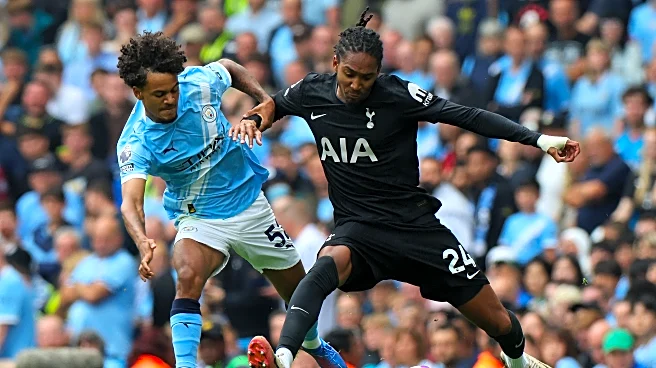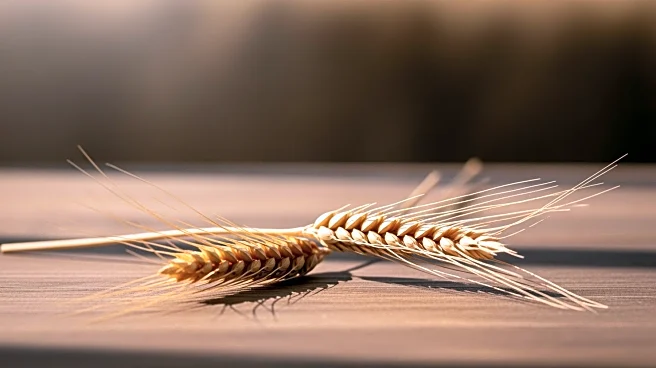Manchester City were well beaten by Tottenham Hotspur in their first game of the 2025/26 season.
Brennan Johnson gave Spurs the lead ten minutes before the end of the half, tapping home from Richarlison’s
cross after beating City’s offside trap.
Joao Palhinha doubled the lead a few minutes later, after James Trafford gave the ball away inside his own box.
City were poor and created very few chances, with it ultimately being a bad day at the office for all concerned.
Here are three things we learned from the season opener at the Etihad:
Too much change can be a thing

Of City’s starting XI against Spurs, six of the players weren’t a part of the team a year ago.
Trafford, Rayan Ait-Nouri, Nico Gonzalez, Tijjani Reijnders, Rayan Cherki and Omar Marmoush all joined the club in the year 2025. Oscar Bobb has also only made a handful of appearances for the first team after his injury last year, and Rico Lewis is only 20.
The midfield in particular seemed to struggle against the physicality of Pahlinha, Pape Sarr and Rodrigo Bentancur, with Cherki and Reijnders both well below the level they were at Wolves last week.
Bernardo Silva was dropped after a good performance at Wolves last week, though it’s perhaps not true to say that he alone would’ve made the difference, particularly considering he was poor when he came on.
Ultimately, I think it could just be a case of too much change too quickly in important areas of the pitch, as well as perhaps a lack of balance in midfield with both Reijnders and Cherki starting without Rodri at the base.
The Spaniard came on at the end and understandably looked rusty, but when he’s fit, he’ll make a difference, as will the likes of Bernardo, Phil Foden, Mateo Kovacic, Nathan Ake and the other players with experience at City under their belt.
Individual mistakes costly… but a sign that things aren’t terrible

The performance against Spurs was littered with one thing – random individual mistakes. And that to me should be an encouraging sign that thighs aren’t going to rot like last season.
Pep Guardiola pointed this out himself in his post match press conference.
“We started well, conceded, but in simple things with the ball we lost, and with the top quality they (Tottenham) have… Individually, simple things with the ball we missed, and that’s why they could transition. After they scored at the end of the first-half, it was difficult,” the City boss said to TNT Sports after the game.
Passing accuracy was certainly an issue. The Blues completed significantly more passes and had a higher percentage completion against Wolves than they did against Spurs, despite having 3% less possession.
Usually the crisp, possession play is on point, and if there’s one thing Guardiola knows how to coach into players it’s how to effectively move the ball.
At the time the sloppiness seemed unbearable to those in the stadium, but looking back, you could argue that 2-0 flattered Frank’s side.
It’s easy to forget that Spurs’s first goal was a matter of millimetres away from being offside (and John Stones slipped) and their second goal came from an individual mistake.
City had higher xG and are certainly not going to be as careless with the ball as they usually are. That’ll put less pressure on the defence, who as explained above held out pretty well considering the circumstances.
The Spurs game was undeniably one to forget – but it was hardly a disastrous sign of things to come after.
Wide full backs is the way to go

The back three with an inverted full back system has, in my opinion, run its race.
For now at least, it’s meaning that City are getting both overpowered in midfield and destroyed out wide, with right back Rico Lewis constantly caught out of position due simply to his tactical instructions.
Football in the Premier League is recognised to have become more about physicality in the last year or so, meaning this system is struggling and teams with physical, fast players are excelling.
Therefore, against Brighton and for the foreseeable future, I’d like to see City’s wingers tuck inside with width provided by the full backs.
Ait-Nouri and Matheus Nunes both provide the attacking threat of wingers and have the pace and athleticism to recover quickly and play effectively in an offside trap, so I’d start them against Brighton and Hove Albion next week.
If Ait-Nouri can’t play, Nico O’Reilly is the next best outlet, followed by Josko Gvardiol.
To add to that, Marmoush, Bobb, Cherki, Foden and even Doku are better operated inside, where they’re allowed to cut in with fullbacks providing width.
Obviously, Guardiola has a better grip on football than I ever will, but I do think that City tend to look better when utilising width correctly and playing to the strengths of our most talented attackers.









